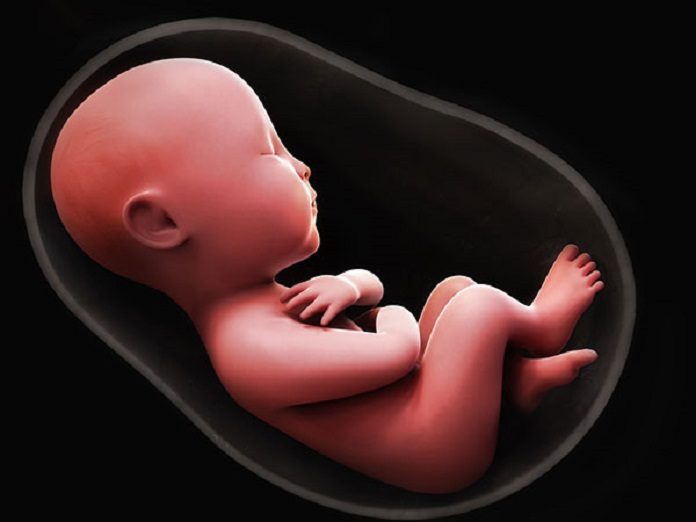
Pregnancy is a wonderful experience for every woman. There’s nothing more exciting than knowing that you’re carrying a little life inside you. As soon as you find out that you’re pregnant, one of the first things that comes to your mind is the development of your baby. You want to make sure that everything is going well with your pregnancy and that your baby is developing healthily, especially the brain.
Table of Contents
When Does the Brain Develop in the Womb?
The development of the brain is a crucial part of fetal growth. The brain is responsible for controlling all the body’s functions, and it is the source of all our thoughts and emotions. The brain starts developing from the moment of conception, but it’s only a few weeks before the embryo begins to show signs of brain activity.
At around 5 weeks of gestation, the neural tube starts to form. The neural tube is a structure that eventually develops into the brain and the spinal cord. By the end of the first trimester, the brain has already formed its basic structure, and the neurons start to develop. The neurons are the building blocks of the brain, and they play a crucial role in the development of the nervous system.
During the second trimester, the brain continues to develop rapidly. The cerebral cortex, which is responsible for thinking and processing information, starts to develop. The brain also starts to form different parts, such as the cerebellum, which is responsible for balance and coordination.
By the third trimester, the brain is almost fully developed. The cerebral cortex has developed a complex network of neurons, and the different parts of the brain are connected. During this stage, the brain is also preparing for the outside world, and the baby starts to practice breathing and swallowing.
Factors That Affect Brain Development in the Womb
The development of the brain in the womb is influenced by different factors. Here are some of the most important ones:
1. Nutrition
The food that you eat during pregnancy plays a crucial role in the development of your baby’s brain. A diet that is rich in essential nutrients, such as folic acid, omega-3 fatty acids, and iron, can help support brain development. On the other hand, a poor diet can lead to developmental delays and cognitive problems.
2. Environmental factors
Exposure to toxins and pollutants during pregnancy can also affect brain development. For example, exposure to lead can lead to lower IQ and behavioral problems. Smoking and alcohol consumption can also affect the development of the brain and lead to cognitive and behavioral problems.
3. Stress
Stress during pregnancy can also affect the development of the baby’s brain. High levels of stress hormones can lead to a smaller brain size and lower cognitive abilities. It’s important to manage stress during pregnancy to ensure healthy brain development.
What Can You Do to Support Your Baby’s Brain Development?
As a mother, you play a crucial role in supporting your baby’s brain development in the womb. Here are some tips that can help:
1. Eat a Healthy Diet
Make sure that you’re eating a healthy and balanced diet that includes essential nutrients for brain development, such as folic acid, iron, and omega-3 fatty acids. Limit your intake of processed foods, sugar, and unhealthy fats.
2. Avoid Toxins and Pollutants
Try to avoid exposure to toxins and pollutants, such as lead, mercury, and pesticides. If you work in an environment that exposes you to these toxins, make sure to take the necessary precautions to protect yourself and your baby.
3. Manage Stress
Stress during pregnancy can affect the development of your baby’s brain. Try to manage stress by practicing relaxation techniques, such as yoga, meditation, or deep breathing exercises.
4. Stay Active
Regular exercise during pregnancy can help support healthy brain development in your baby. Make sure to talk to your doctor about safe exercise options during pregnancy.
5. Get Enough Sleep
Getting enough sleep during pregnancy is important for both you and your baby. Lack of sleep can affect brain development and lead to cognitive and behavioral problems in children.
Conclusion
The development of the brain in the womb is a complex process that is influenced by different factors. As a mother, you play a crucial role in supporting healthy brain development by eating a healthy diet, avoiding toxins, managing stress, staying active, and getting enough sleep. By taking care of yourself during pregnancy, you’re also taking care of your baby’s brain and setting them up for a healthy and happy life.
Frequently Asked Questions
1. When does the brain develop in the womb?
The brain starts developing from the moment of conception, but it’s only a few weeks before the embryo begins to show signs of brain activity. By the end of the first trimester, the brain has already formed its basic structure, and the neurons start to develop.
2. What factors affect brain development in the womb?
Nutrition, environmental factors, and stress are some of the factors that can affect brain development in the womb.
3. How can I support my baby’s brain development in the womb?
You can support your baby’s brain development in the womb by eating a healthy diet, avoiding toxins, managing stress, staying active, and getting enough sleep.
4. Can stress during pregnancy affect the baby’s brain development?
Yes, high levels of stress hormones during pregnancy can lead to a smaller brain size and lower cognitive abilities in the baby.
5. What should I avoid during pregnancy to support my baby’s brain development?
You should avoid exposure to toxins and pollutants, such as lead, mercury, and pesticides. Smoking and alcohol consumption can also affect the development of the brain and lead to cognitive and behavioral problems.
